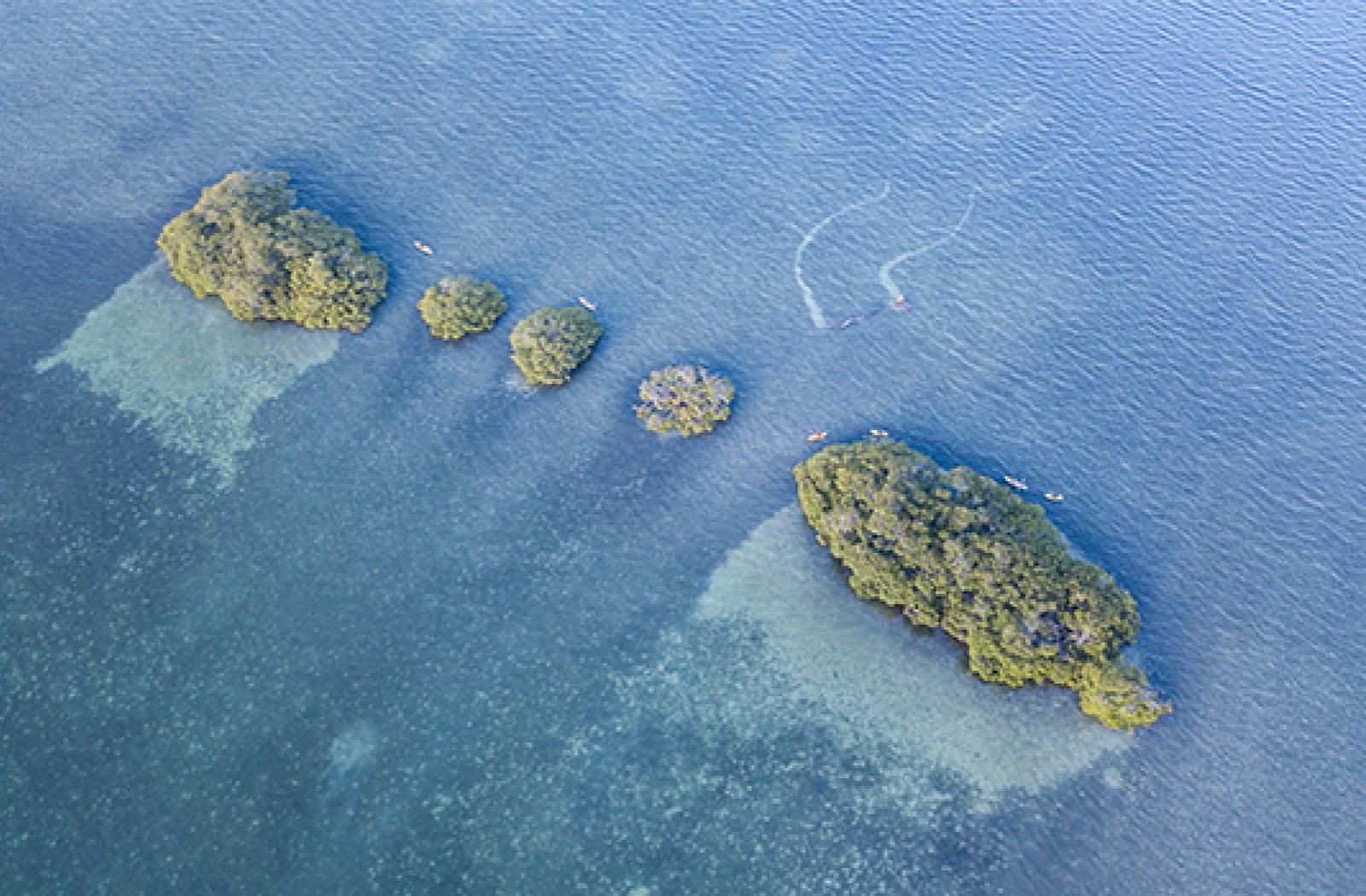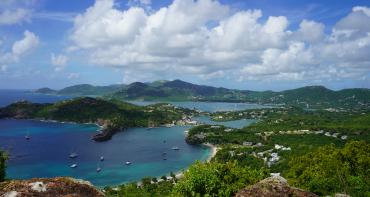We have one interconnected ocean that sustains life on this planet. Yet it is under threat from a myriad of human pressures, such as climate change, marine pollution, and overfishing, with no holistic approach to tackle these.

We have one interconnected ocean that sustains life on this planet. Yet it is under threat from a myriad of human pressures, such as climate change, marine pollution, and overfishing, with no holistic approach to tackle these.
Worldwide, marine conservation and other ocean solutions continue to be severely underfunded, ocean climate change under-researched, while global frameworks for governing the ocean, particularly beyond national jurisdictions, remain weak and inadequate.
Many opportunities have been missed, but 2021 presents a rare opportunity to tackle these ocean challenges, and the Commonwealth Blue Charter offers a unique platform to catalyse multilateral actions to do so.
2021 – A ‘make or break’ year
The coronavirus pandemic has compelled governments to overhaul national, regional and international priorities. It has also taught us that we can adapt to new realities. A growing call for a “green recovery” has put sustainability as a realistic option for post-pandemic rebuilding strategies.
Two major global summits this year – the UN conferences on biodiversity (CBD-COP15) and climate change (UNFCCC-COP26) – present a prime opportunity for ocean states to also rally round a post-Covid “blue recovery”.
Such a step forward would highlight the central role of the ocean in upholding vast natural ecosystems, the climate system and economic systems. The focus would be on the sustainable development of the global ocean economy, which was already generating $2.5 trillion worth of goods and services each year before the pandemic, on top of an estimated asset value of $24 trillion.
In particular, this could help support vulnerable ocean-based economies that have been most severely impacted by Covid-19, such as small island states.
A blue recovery would also maximise innovative financing for ocean protection (‘blue finance’), and explore new ways of creating economic value, such as monetising the carbon storage capacity of coastal and marine ecosystems (‘blue carbon’).
A fresh take on multilateral ocean action
With 47 out of its 54 member countries bordering the ocean, 25 being small island developing states - or ‘large ocean states’ - the Commonwealth is well-placed as a global leader on ocean action to champion a thriving blue economy in a post-Covid world.
The historic Commonwealth Blue Charter, adopted in 2018, captures the shared commitment of 54 countries to working together to actively solve ocean-related challenges.
To date, 15 countries have stepped forward to lead 10 action groups, working on a range of ocean issues. Focus areas and champion countries include: sustainable blue economy (co-led by Kenya, Antigua & Barbuda); sustainable aquaculture (led by Cyprus); coral reef protection and restoration (Australia, Belize, Mauritius); mangrove ecosystems and livelihoods (Sri Lanka); ocean acidification (New Zealand); ocean and climate change (Fiji); ocean observations (Canada); marine plastic pollution (known as the Commonwealth Clean Ocean Alliance, co-led by the United Kingdom, Vanuatu); marine protected areas (Seychelles) and sustainable coastal fisheries (Kiribati, Maldives).
Forty-six countries (and counting) have signed up to one or more of these action groups, supported by the Commonwealth Secretariat, along with a range of partners from the private sector, academia, civil society and the philanthropic sector.
Action-oriented
In a world of complex multilateral structures and well-intended declarations, the Commonwealth Blue Charter seeks to support existing global ocean commitments by bringing a fresh approach focused on active and innovative collaboration.
As membership of the action groups is voluntary, countries that do sign up are already motivated to deliver real progress on a particular issue. These action groups have met over the past year and developed joint action plans and priorities. Different action groups also feed into each other, given the strongly interrelated nature of their work areas.
Today, hundreds of focal points and partners from across the Commonwealth use the Commonwealth Blue Charter’s online network to share strategies, exchange information and highlight best practices.
More than 60 detailed case studies of good and best practices have been developed and are being shared on the network, in addition to 10 training programmes and webinars delivered by the Secretariat, benefitting thousands of professionals in the ocean industries.
Collaborators from Bloomberg Philanthropies, the Royal Foundation’s Earthshot Prize, Vulcan Inc., the Nekton Foundation, and eXXpedition, among others, are working together with the Blue Charter family of nations on targeted projects and partnerships.
Very soon, countries will also be able to leverage a new database that aims to support them in accessing US$ 170 million of available funding for ocean projects.
Working together
Moving forward, the Commonwealth Blue Charter will continue to be a testament to what can be achieved when countries work together, sharing passion and commitment, to save the ocean and the livelihoods that depend on it. A thriving blue economy is indeed within reach.
To find out how to join the action, visit https://bluecharter.thecommonwealth.org/ or email [email protected]



